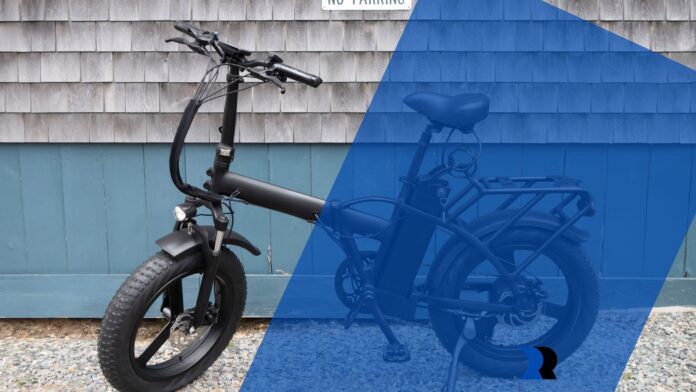Over the years, electric bikes have gained immense popularity and have fully changed our thinking about personal transportation. From being a highly niche product, electric bikes have now become an integral part of modern mobility. Due to rapid technological development and rising ecological awareness, e-bikes have turned out to be game-changing for commuters, eco-conscious people, and all those who seek much more convenience while traveling. This article takes a peek at the innovation behind electric bikes, their importance, and why they’re poised to replace traditional modes of transportation.
Electric Bike Growth
The early prototypes of e-bikes have undergone a complete transformation. First seen in the late 19th century, and only during the last few decades, e-bikes have achieved remarkable success.
Continuous innovations resulted in today’s electric bikes with several huge steps forward with respect to both battery technology and motor efficiency, and even bike design. Equipped with powerful lithium-ion batteries, today’s e-bikes feature longer ranges and quicker charging times to make their use more practical for everyday transportation.
The electric bike market has grown at a rapid pace. According to recent statistics, the global e-bike market is projected to surpass $40 billion by 2030. This means a shift in consumer preference as people start embracing electric bikes for their advantages compared to traditional means of transportation.
The Significance of Electric Bikes
They address a number of imminent issues, such as the following: they contribute much to environmental sustainability. While electric bicycles start to supplant their gasoline fuel fed counterparts, they do not emit fumes and other gasses; they reduce air and greenhouse gas pollution, thus becoming a strategically important shift toward greener transportation.
Economically, electric bikes come with considerable savings. They are well below the operating costs of a car. Without the need for gasoline and with fewer maintenance needs, e-bikes are something that will do no denting to your wallet. Another added advantage of reducing the financial stress for any buyer is the incentives that governments offer when purchasing electric bikes.

Health-wise, electric bikes offer that peculiar combination of exercise and convenience. Yes, they will provide assistance with pedaling, yet active physical activity is taken up. This is deemed to enhance cardiovascular health, improve health, and build up fitness. For this reason, they are increasingly attractive to people who desire to be active but do not commit themselves to hard-working fitness workouts.
Benefits of Electric Bikes
Electric bikes come with a myriad of advantages that make them very attractive to many. One of the most considerable advantages that electric bikes boast of is their ease of operation. With incorporation features such as pedal-assist and throttle controls, riders can easily get through traffic and climb arduous slopes with so much ease. This ease of use is rather convenient in the case of urban commuting, where electric bikes can easily navigate through traffic snarls, hence saving time spent in commuting.
Electric Bicycles really stands out in terms of cost efficiency. After paying the usually higher purchase price, depending on the country, it can be offset with government rebates and the ongoing costs are small. Charging an e-bike costs little in comparison to the fuel that one puts in a car. Maintenance costs tend, for the most part, to be lower because there are fewer moving parts with no oil changes.
Electric bikes are also incomparably versatile. For transportation, they may serve at local levels of travel and errands to just about any length and purpose of a ride, recreational or otherwise. Most have removable inbuilt batteries, integrated lights, and cargo racks that add functionality and convenience.
Why Switch To An Electric Bike?
In fact, there are quite a few cogent reasons to turn to e-bikes, unlike other traditional modes of transport. First, e-bikes are much more economical to operate compared to cars; they are cheaper to invest in and also to run in the long term. They provide a greener alternative, helping to reduce congestion on the roads and resulting emissions.
While motorcycles provide speed and efficiency, they also consume more fuel and are more costly to maintain. In contrast, an e-bike offers ease of movement with no environmental impact and at a very low cost. Public transport is generally cheaper but not always reliable or even convenient. An e-bike offers flexibility in transportation and dependability and thus allows the user to travel at will.

On the other hand, testimonies are pinpointed in an empowering way. Most e-bike owners have described commuting to be more enjoyable and also less stressful with little or no concern raised about parking and traffic. With technology improving day in and day out, the electric bike industry is probably going to enjoy many more innovations, making e-bikes increasingly attractive for modern transportation.
Conclusion
Electric bicycles are anything but a fad; they are a disruption in the way people move around. With manifold benefits of use, environmental protection, and economy, e-bikes are going to be the choice for most people who look at having a better commute each day, reducing their carbon footprint. With the ever-growing electric bike market and improved technology, there has never been an ideal time for a switch. You could consider understanding electric bikes and how they work to change your transport experience.


